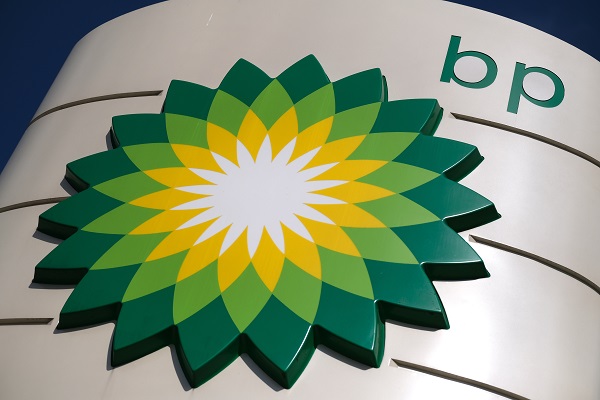ii view: BP profits boom, but takes massive hit on Russia exit
3rd May 2022 11:40
by Keith Bowman from interactive investor
Drawing a line under its Russian interests and announcing a new share buyback programme. We assess prospects.

First-quarter results to 31 March
- Headline loss of $23.05 billion (£18.44 billion) including write-off of Russian shareholding
- Adjusted profit up 137% year-over-year to $6.24 billion (£4.99 billion)
- Net debt down 17% to $27.45 billion (£21.96 billion)
- Dividend unchanged at 5.46 US cents per share
- New share buyback programme of up to $2.5 billion (£2 billion)
Chief executive Bernard Looney said:
“In a quarter dominated by the tragic events in Ukraine and volatility in energy markets, BP's focus has been on supplying the reliable energy our customers need. Our decision in February to exit our shareholding in Rosneft resulted in the material non-cash charges and headline loss we reported today.
“But it has not changed our strategy, our financial frame, or our expectations for shareholder distributions. Importantly BP continues to perform and step-by-step we are making progress executing our Integrated Energy Company strategy - producing resilient hydrocarbons to provide energy security while investing with discipline in the energy transition.”
ii round-up:
Oil giant BP (LSE:BP.) today posted the biggest quarterly headline loss in its history as it wrote off the value of its Russian oil business stake.
A $24 billion (£19.2 billion) write-off for its Rosneft Russian oil business stake pushed it to a headline loss of $23.05 billion (£18.44 billion). However, excluding the write-off, adjusted profit soared to $6.24 billion (£4.99 billion) from last year’s $2.63 billion (£2.1 billion) as energy prices rocketed on the back of Russia’s invasion of Ukraine. That beat City estimates of nearer to $4.5 billion (£3.6 billion) and proved to be its highest outcome in over 10 years.
BP shares rose by more than 3% in UK trading to leave them up by over a fifth year-to-date. The price of oil is up by just over a third in 2022 as countries including much of Europe have tried to find alternatives to Russian supplies. Shares for Shell (LSE:SHEL) are also up by just over a third year-to-date.
- Shares for the future: my five best shares for long-term investment
- Stockwatch: core growth and inflation protection
Looking forward, BP expects an ongoing elevated risk of oil price volatility. This reflects uncertainties around the level of disruption to Russian supplies, the capacity for increased OPEC plus supplies, the ongoing impact of the pandemic on demand and the effect of the conflict in Ukraine on economic growth.
Underwritten by surplus cashflow of $4.1 billion generated over the first quarter, BP now intends to carry out a share buyback programme of up to $2.5 billion over the second quarter period.
A first-quarter 2022 dividend of 5.46 US cents per share is unchanged from the fourth quarter of 2021. Group net debt fell 17% from the year ago period to $27.45 billion.
Second-quarter results are scheduled for 2 August.
ii view:
BP previously commenced a new strategy to become an Integrated Energy Company (IEC), increasing its production of low carbon energies and reducing its hydrocarbon production. Initiatives undertaken in this latest quarter include growing its position in offshore wind and announcing plans for a green hydrogen plant in Rotterdam. It also launched an electric vehicle (EV) strategic partnership with Volkswagen AG (XETRA:VOW). BP plans to be a very different kind of energy company by 2030.
- Discover lessons on how to be a better investor here
- When markets fall heavily, here's what to avoid doing
For investors, the volatility of energy prices cannot be ignored. Oil company share prices have been correlated to significantly reduced energy demand under the pandemic in early 2020, then to rocketing prices following Russia’s invasion of Ukraine in February. Global warming concerns continue to overhang, while investments in low-carbon energies are now required, with the price of buying such assets likely pushed higher as established players like SSE (LSE:SSE) and industry rivals also take an interest. Worries regarding potential government windfall taxes also persist given the struggle for many consumers to pay energy bills.
On the upside, the write-off of its Russian interests arguably removes a major issue and reduces related uncertainty going forward. Moves to becoming an IEC continue to be taken, while the boost to cashflows from elevated energy prices is underpinning raised shareholder returns via a newly announced $2.5 billion share buyback programme. In all, and with the shares sat on an estimated future dividend yield of around 4.5% and the consensus analyst estimate of fair value standing at over 490p per share, room for longer term optimism looks to persist.
Positives:
- Pursuing a greener future strategy
- Attractive dividend payment (not guaranteed)
Negatives:
- Competition in greener energy arena intensifying
- Subject to oil price volatility
The average rating of stock market analysts:
Buy
These articles are provided for information purposes only. Occasionally, an opinion about whether to buy or sell a specific investment may be provided by third parties. The content is not intended to be a personal recommendation to buy or sell any financial instrument or product, or to adopt any investment strategy as it is not provided based on an assessment of your investing knowledge and experience, your financial situation or your investment objectives. The value of your investments, and the income derived from them, may go down as well as up. You may not get back all the money that you invest. The investments referred to in this article may not be suitable for all investors, and if in doubt, an investor should seek advice from a qualified investment adviser.
Full performance can be found on the company or index summary page on the interactive investor website. Simply click on the company's or index name highlighted in the article.